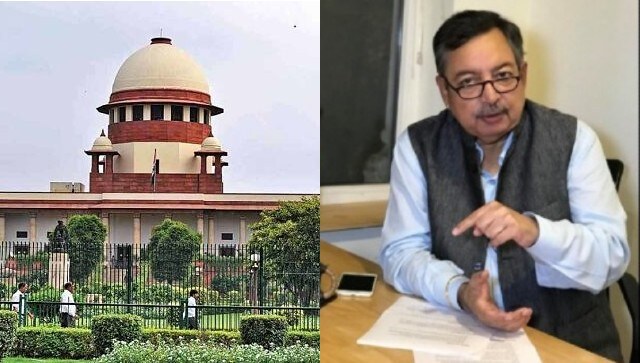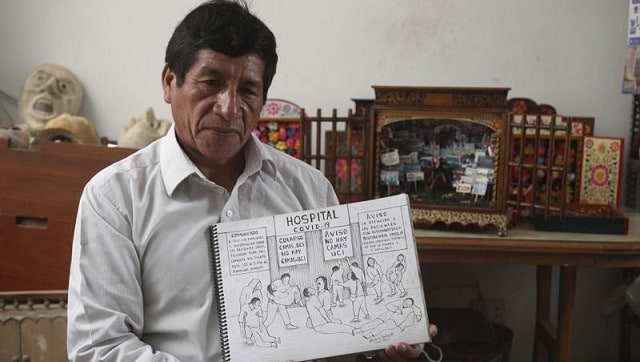Sedition law an affront to democracy; both public debate, judicial intervention crucial to remove provision
There is a substantial case to be made for taking section 124(A) or sedition law out of the IPC, given that it has no relevance in a democracy and plenty of scope for misuse

SC recently quashed the sedition case against Vinod Dua
A Supreme Court bench quashed sedition charges against veteran journalist Vinod Dua on 3 June, ruling that his criticism of the Union government’s handling of the COVID-19 crisis and comments on the politicisation of the Pulwama attack and the Balakot airstrike did not amount to inciting the people against the Government or promoting disorder.
crisis and comments on the politicisation of the Pulwama attack and the Balakot airstrike did not amount to inciting the people against the Government or promoting disorder.
The ruling was in keeping with judicial precedents, which we need not go into in detail. But it should be noted that this comes after another bench of the Supreme Court had on 31 May referred to the need for revisiting three sections of the Indian Penal Code (IPC) – Section 124A (the so-called sedition law); Section 153A (promoting enmity between groups); and, Section 505 (public mischief) – particularly with regard to the rights of the media.
In that case, relating to reportage by two television channels in Andhra Pradesh, the bench had observed that attempts to muzzle the press violated Fundamental Rights and cited a Supreme Court hearing on 30 April during which categorical observations had been made on the need for restraint in invoking the coercive arm of the law against people passing opinions on matters critical to governance in the time of the COVID-19 pandemic.
pandemic.
These judgements must be viewed against the backdrop of what appears to be the widespread use of the ‘sedition law’. Statistics put out by the National Crime Records Bureau indicate a disturbing situation. It started collecting numbers on sedition cases in 2014: 47 cases were filed that year; 30 in 2015; 35 in 2016; 51 in 2017; 70 in 2018; and 93 in 2019. Given the scatterguns approach to filing sedition cases, of which more in a bit, it is unsurprising that conviction rates are very low – one each in 2016 and 2017, two in 2018 and three in 2019.
Section 124A of the IPC says, "Whoever, by words, either spoken or written, or by signs, or by visible representation, or otherwise, brings or attempts to bring into hatred or contempt, or excites or attempts to excite disaffection towards, the Government established by law in India, shall be punished with imprisonment for life...."
Explanations state that 'disaffection' includes disloyalty and feelings of enmity; comments expressing disapprobation of government policies with a view to altering them lawfully are not seditious; and comments that do not ‘excite’ hatred, contempt or disaffection are not seditious either.
Explanations notwithstanding, the IPC section on ‘sedition’ remains vague enough for it to be used indiscriminately despite a 1962 Supreme Court judgement specifying that Section 124A could only be interpreted to mean incitement to violence or the overthrowing of a democratically elected government.
Thus Siddique Kappan, a journalist going to Hathras in Uttar Pradesh to cover a rape case; Disha Ravi, an environmental activist; and, some members of the staff and parents of students of a school in Bidar in Karnataka, in which a play was staged against the Citizenship (Amendment) Act, 2019, have been charged with sedition.
There is a need for a broader examination of the laws against sedition. That the Supreme Court asked for its re-examination apropos of the media is a start, but why leave citizens in general out of the ambit of the review? On 30 April, the Supreme Court had been hearing a petition filed by two journalists – one from Manipur and the other from Chhattisgarh – challenging the constitutionality of Section 124A in the first place.
The petitioners had argued that the frequent misuse, misapplication and abuse of the law, while not necessarily bearing on its validity, pointed to its vagueness. They also argued, as many have done before, that laws of sedition have been condemned throughout the democratic world as being undemocratic and undesirable. Most postcolonial democracies have repealed colonial-era sedition laws.
All these arguments make eminent sense. In India, we have repeatedly seen the deployment of the law against sedition against free speech and dissent. Though we don’t have comparative figures, this trend seems to have intensified in the past few years, which has led to concerns within the country and beyond that India is taking a turn away from democracy.
Practically all countries in the world now have special laws to deal with crimes like terrorism and anti-State conspiracy. India does, too, in the shape of the Unlawful Activities (Prevention) Act and the National Security Act. It is not that these draconian laws are not abused, but there is a substantial case to be made for taking section 124(A) out of the IPC, given that it has no relevance in a democracy and plenty of scope for misuse.
On 30 April, the Supreme Court had directed the Union government to respond to the plea for decriminalising sedition. It is not likely that the Centre will jump at the opportunity to do away with the law on sedition. Only public debate and judicial intervention can take matters forward – as they did with section 377 of the IPC.
also read

Mamata appeals to Centre to withdraw order recalling Bengal chief secretary, says BJP pursuing 'vendetta politics'
The TMC chief also claimed that Narendra Modi and Amit Shah were trying to create problems for her government at every step as they are unable to digest the BJP's defeat in the recent state Assembly polls

In a new book, a Peruvian artist publishes 100 drawings documenting the country's COVID-19 crisis
“Each drawing tells a story that had an impact on me,” says the artist, who drew 750 sketches and selected 100 of them for a book called New Coronavirus and Good Government.

COVID-19 crisis: Unless 70% of global population is vaccinated pandemic won't end, says WHO
The World Health Organization's regional director for Europe Hans Kluge said that one of his main concerns was the increased contagiousness of new variants of the virus